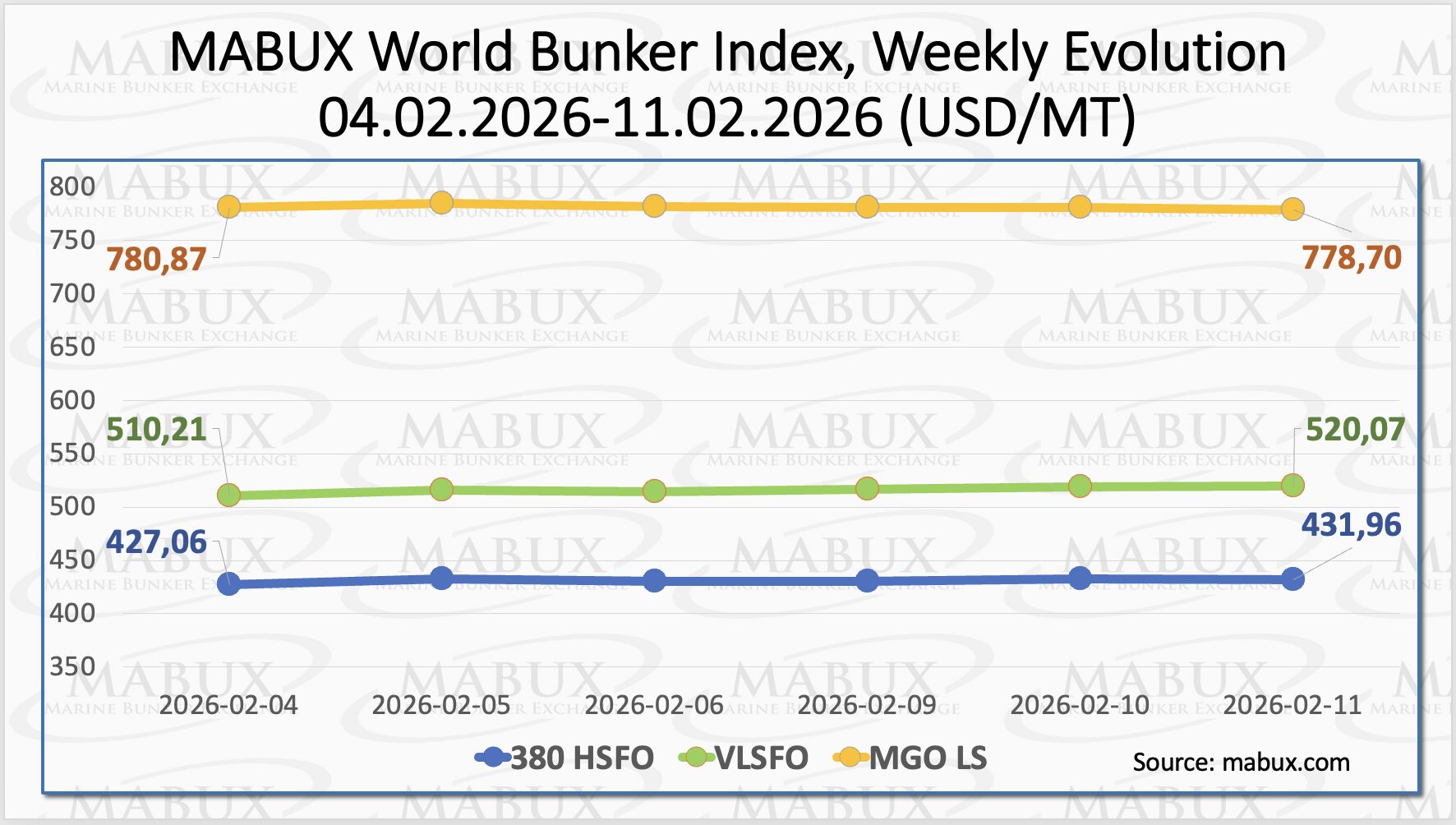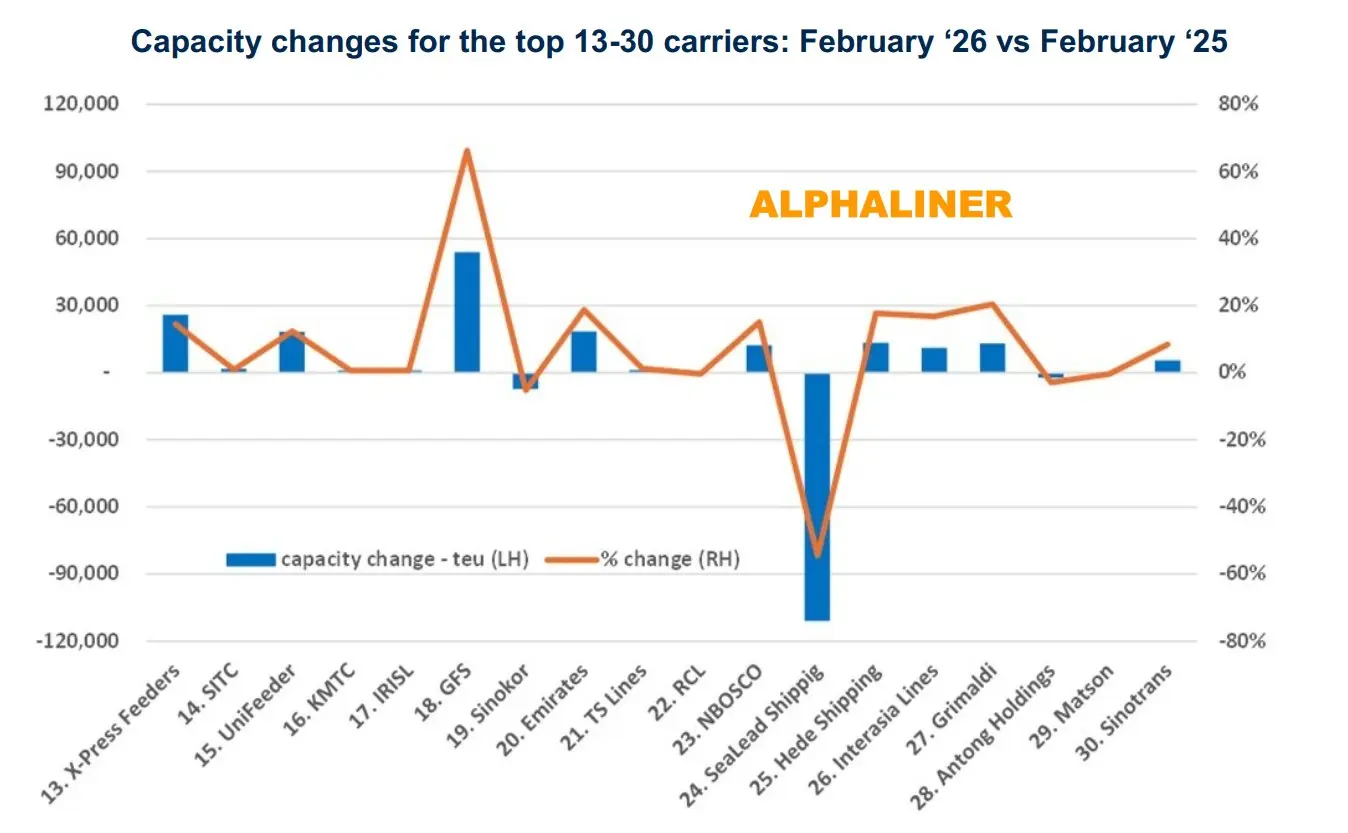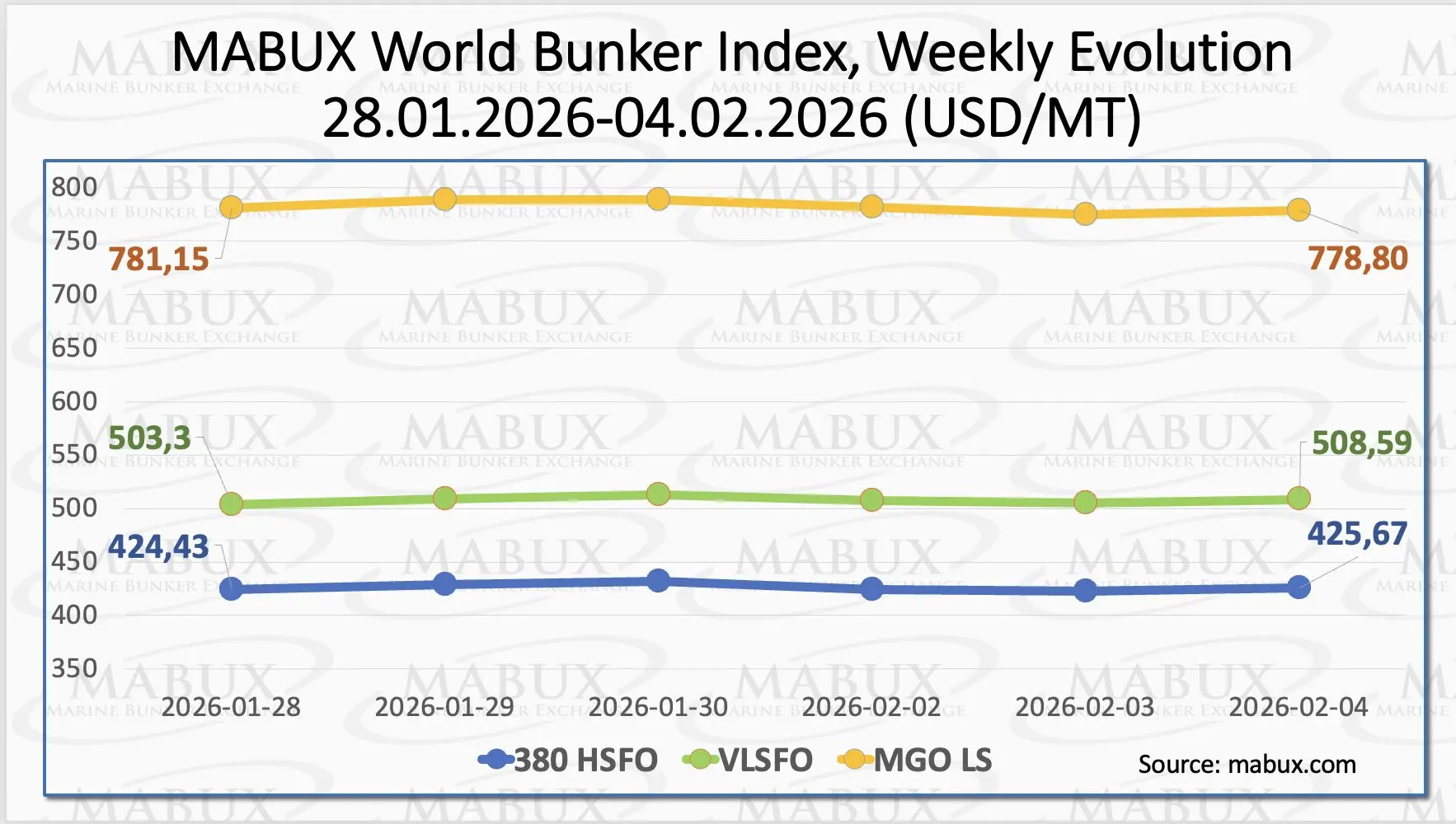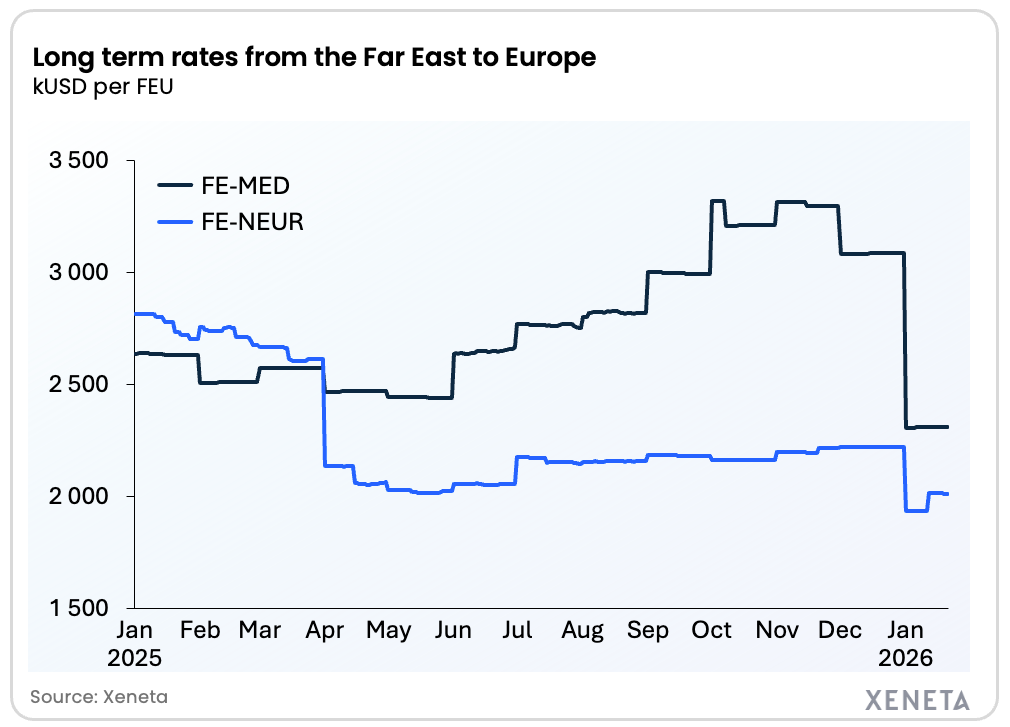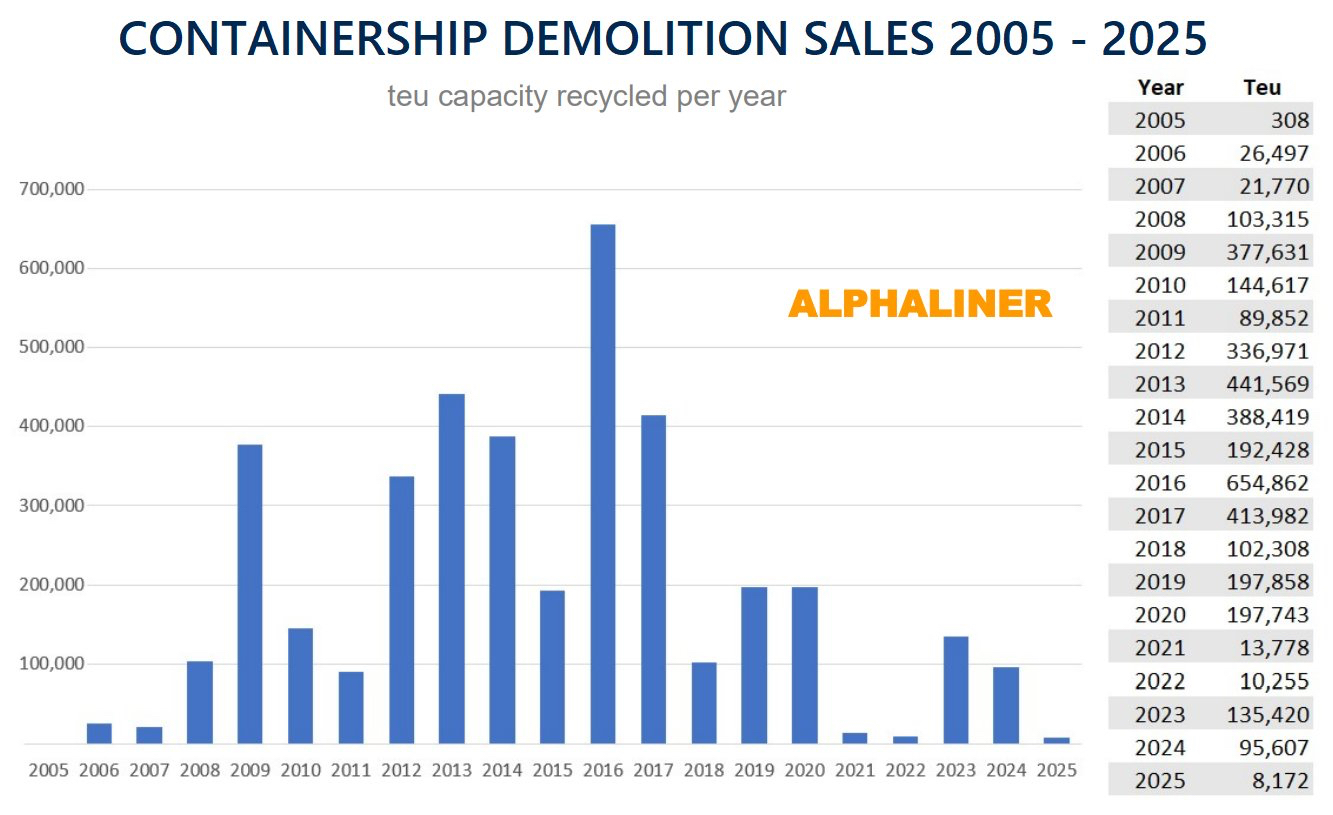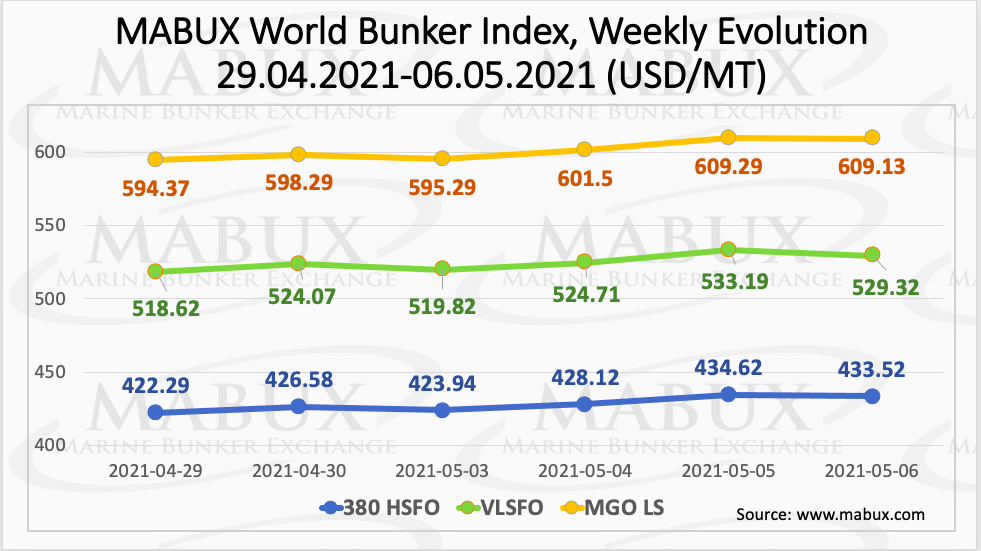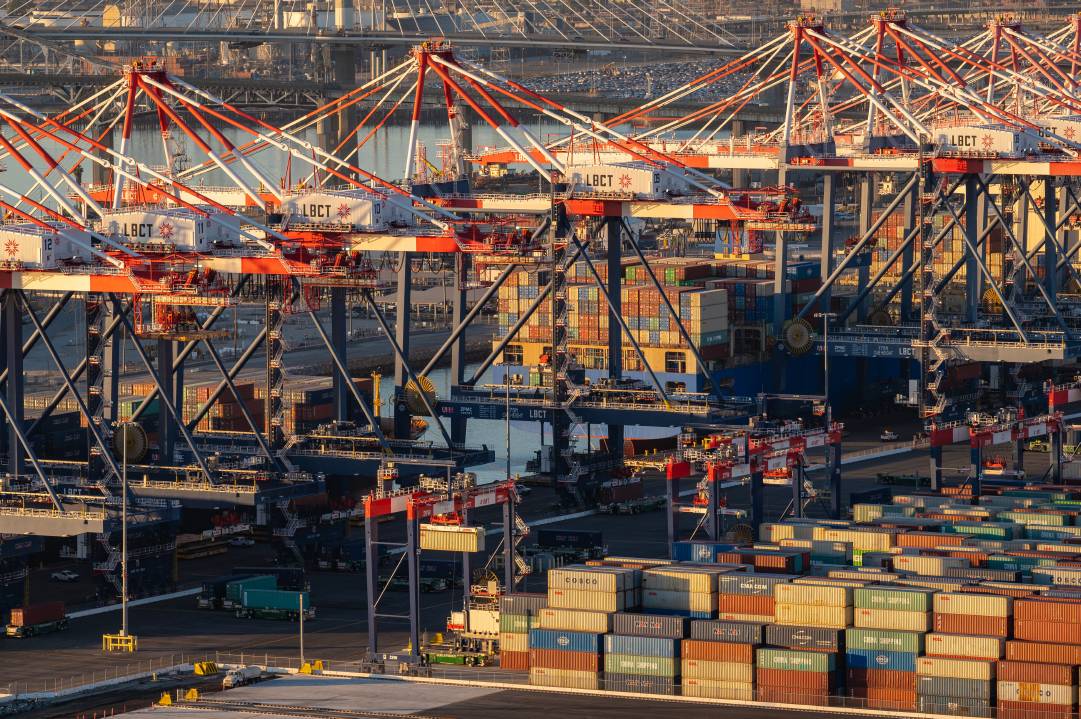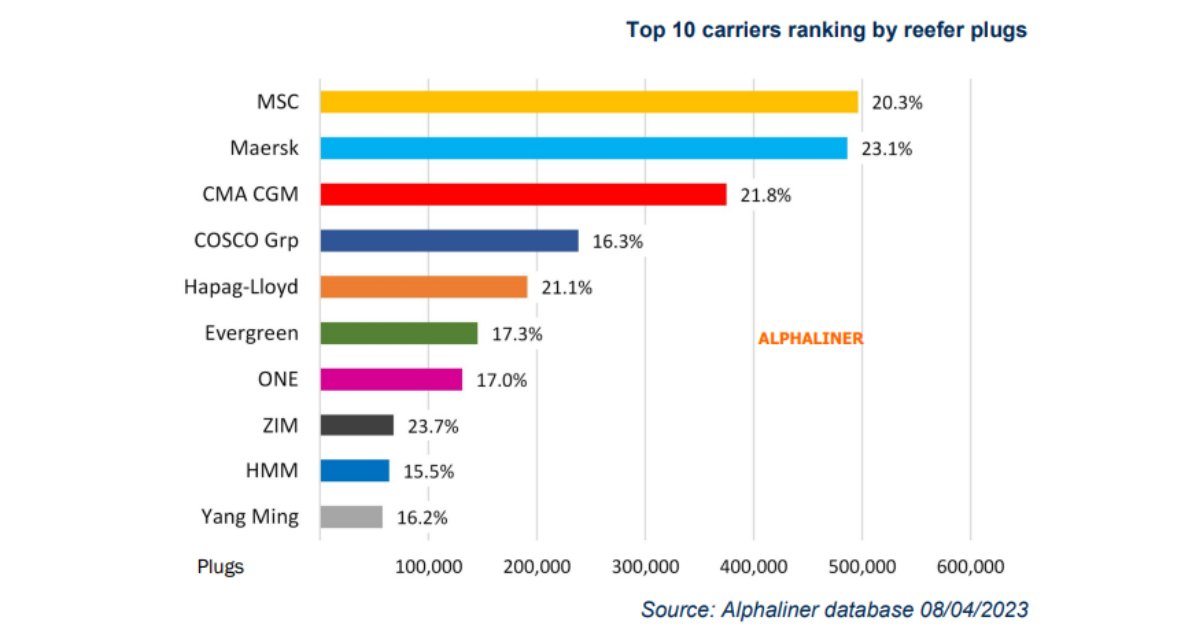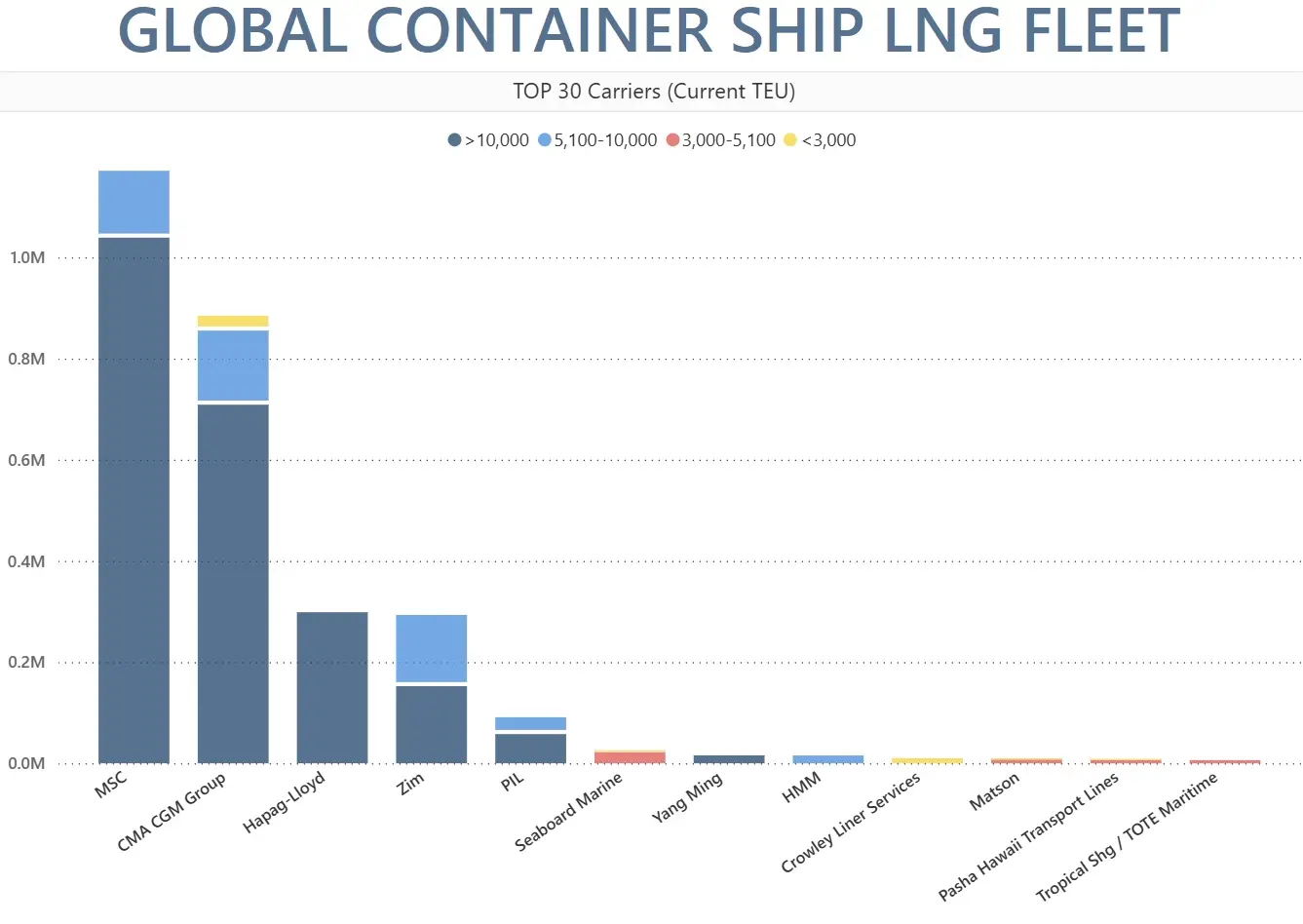
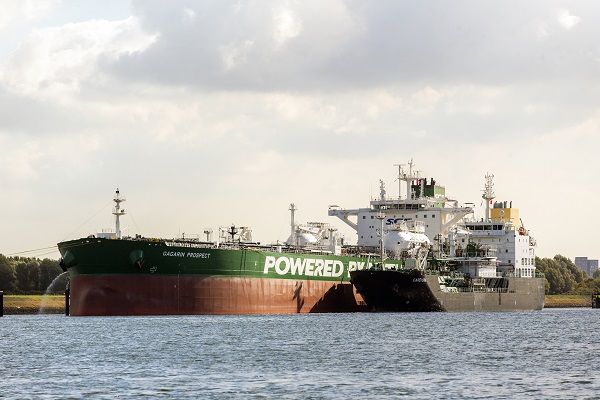
Bunker prices weekly outlook: oil prices spiked to 13-month highs after the Texas Freeze, which knocked out as much as 4 million bpd of U.S. oil production and 6 million bpd of refining capacity. The production outages have created a tighter supply situation that has been absent for most of the pandemic.
MABUX World Bunker Index has shown firm uptrend during the week. The 380 HSFO index has risen from 406.63 USD/MT to 416.90 USD/ MT (+10.27 USD), VLSFO has added 15.97 USD: from 509.70 USD/MT to 525.67 USD/MT while MGO has gained 24.94 USD and has risen from 566.52 USD/MT up to 591.46 USD/MT. The Global Scrubber Spread (SS) – the difference in price between 380 HSFO and VLSFO – has not had any drastic changes during the week and averaged 105.66 USD (105.87 USD last week).
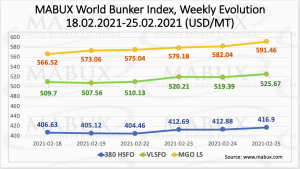
SS Spread in Rotterdam has narrowed during the week from 111.00 USD up to 108.00 USD (-3.00 USD), but the average SS spread for the week has increased by 1.67 USD from 108.83 to 110.50 USD. In Singapore, SS Spread has risen during the week by 7.00 USD: from 122.00 USD to 129.00 USD, however, the average weekly SS index has fallen unexpectedly by 17.00 USD: from 143.17 USD last week to 126.17 USD. All in all, SS upward trend has been slowing down and could turn into downward correction in the short term.
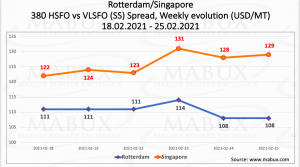
Correlation of MBP Index (Market Bunker Prices) vs DBP Index (MABUX Digital Benchmark) in the four global largest hubs during the past week showed that 380 HSFO and MGO LS fuels remain undervalued in all selected ports. According to DBP Index, 380 HSFO was undercharged on average from minus 5 USD in Houston to minus 23 USD in Rotterdam.
The MGO LS was also underpriced ranging from minus 20 USD in Fujairah to minus 37 USD in Singapore. In Houston there was a 100% correlation between the MBP vs DBP indices for MGO LS grade. The only fuel, according to DBP Index, remain overvalued in all selected ports is VLSFO. The overcharge ranged from plus 2 USD in Singapore to plus 17 USD in Houston.

The Coalition for Energy of the Future has unveiled its first seven projects aimed at accelerating the development of more environmentally friendly future energies and technologies for the transport and logistics sectors. The coalition comprises 14 companies from a range of industries.
The seven concrete actions include a biofuel project which aims to test the first bio-crude oil dedicated to maritime and develop the use of third generation biofuels.
The coalition will also seek to draw a pathway for bioLNG toward carbon neutrality, highlighting key issues to be addressed. Other projects will look at green hydrogen for trucks, green electricity, a digital ‘ecocalculator’ of the global supply chain and intermodal green hubs.
Source: MABUX
Follow on Twitter:
[tfws username=”MabuxAB” height=”700″ width=”350″ theme=”light” color=”#FAB81E” tweets=”2″ header=”yes” footer=”yes” borders=”yes” scrollbar=”yes” background=”yes”]

